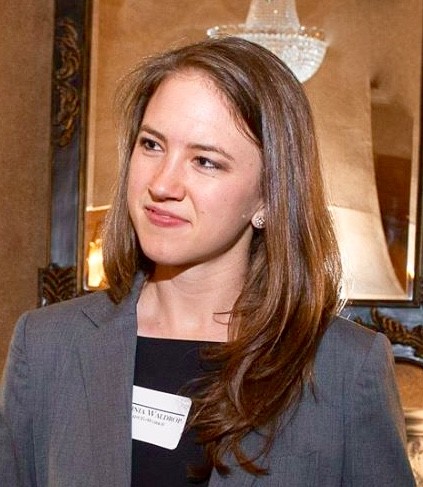
Question: What can you do with a Humanities major?
Virginia: I’ll speak from what I know: you can go into education and business—the areas I have dipped my toes into since graduating—as well as medicine (where I am headed), among many other possibilities. An advantage I believe humanities majors often have is a story to tell about their education. That narrative is compelling and is an insight for employers, admissions committees, etc., of their ability to think creatively and boldly.
Question: Did your humanities major change the way you thought about your intended career?
Virginia: Our first reading assignment for “Evidence in Humanistic Inquiry,” was a pair of articles on medical schools and police departments taking their students to art museums in order to hone their powers of observation. The subject of those articles encapsulates how the Humanities major has impacted the way I think about my intended career in medicine. Majoring in humanities has not lessened my interest in scientific inquiry. It has complemented it, and I suspect I will use my humanities background as much as my science background as I train to be a doctor. Humanities brought me to a place where I have to think and make connections across disciplines in order to find myself fully engaged in whatever I’m doing.
Question: What was the most memorable course you’ve taken at Yale?
Virginia: There were two that stood out to me. The first was “Rhetoric and Political Order” with Professor Thompson—I loved this course not only for the content but also for the group of people it brought together. I looked forward to hearing what my peers had to say every lesson and felt lucky to have been a part of that eclectic and highly intelligent group. Reading Plato for the first time, particularly the Phaedrus, was memorable and a little bittersweet – I was sad I had come to it so late relative to many of my peers but happy I had come to it at all. The whole course reinforced my decision to cross disciplines and major in humanities, particularly writing a final paper on Anne Elliott’s Machiavellian virtue.
The other course was “Modern British Drama” with Professor Fox. This course, which I took as part of Yale-in-London, should have been called “How to be a Theatre Critic.” We went to the theatre twice a week, and then walking back from each show we would debate the merits of the production as well as the play itself. These debates didn’t take place in a classroom or because a professor was leading them – they happened as we rode the Tube or walked home (sometimes purposefully walking home in order to talk for longer). Our discussions from that summer remain some of my favorite memories from Yale and helped lead me back to England after graduating.
Question: What was the most provocative course?
Virginia: “Secularism: Enlightenment-Present” with Professor Stern – The reading list, particularly After Virtue by Alastair MacIntyre and Sources of the Self by Charles Taylor, as well as Professor Stern himself made this course one of the most provocative parts of my Yale education. We had quite a small group in that seminar, but I remember not being bored for a minute of the two-hour session each week (perhaps because there was nowhere to hide!).